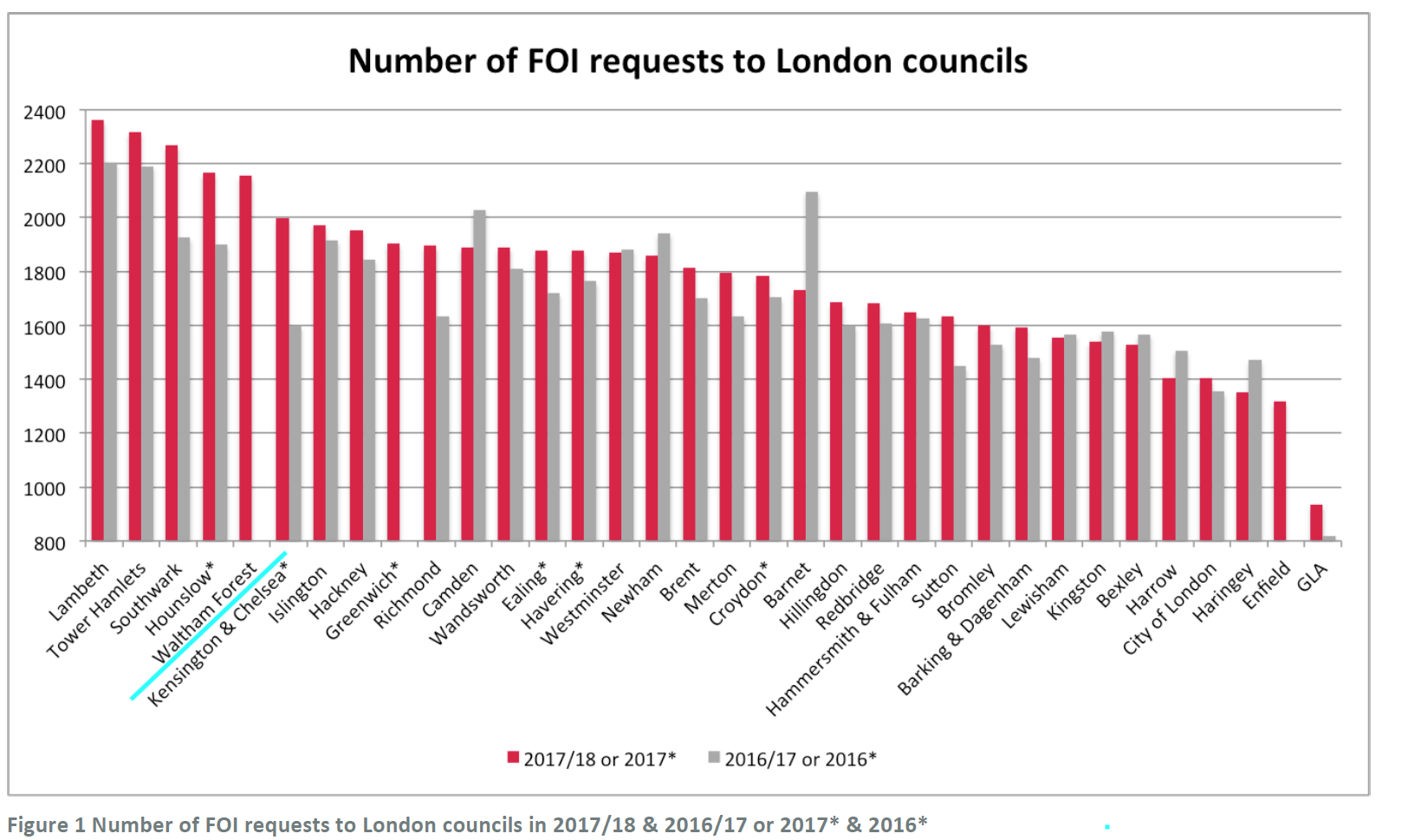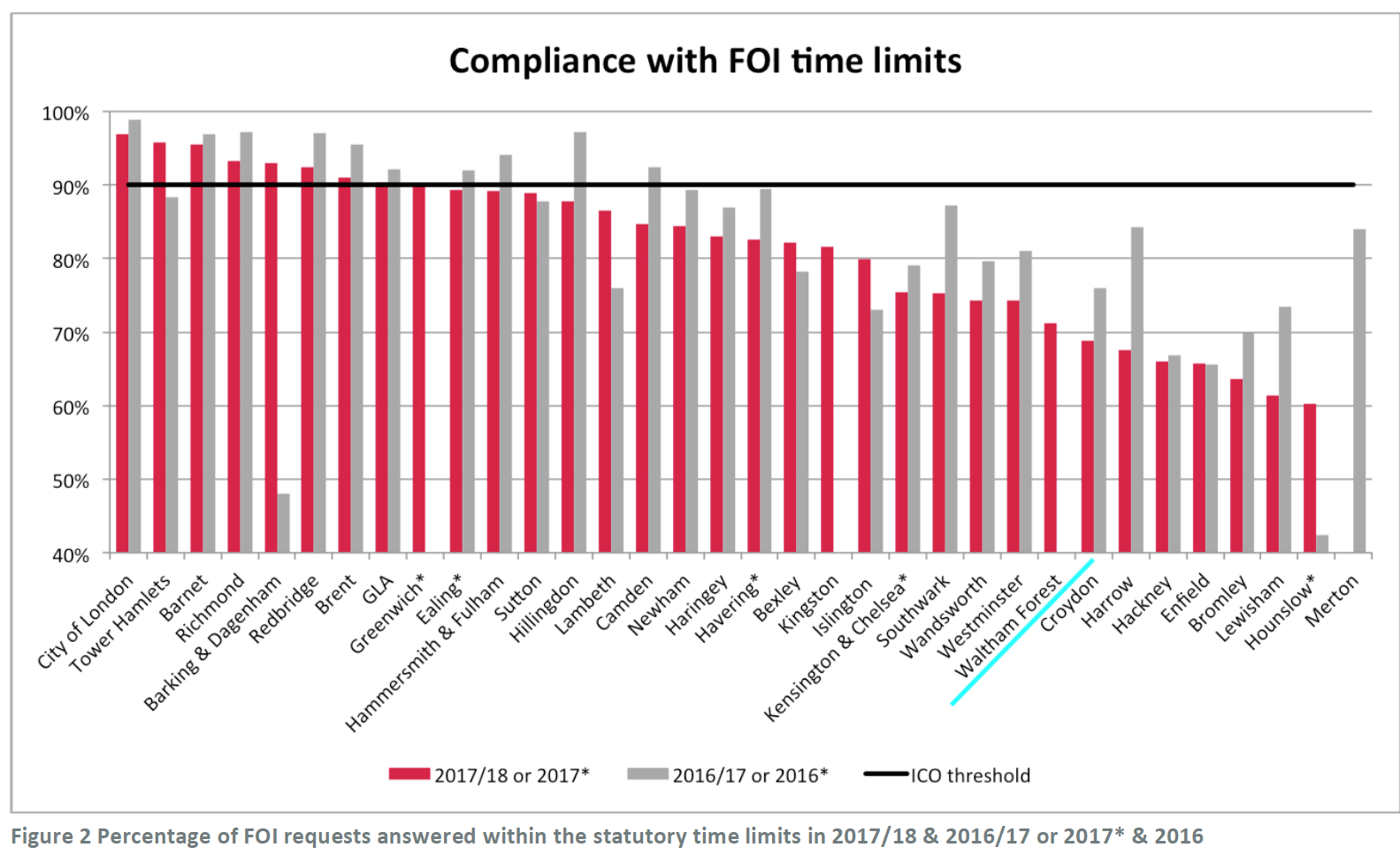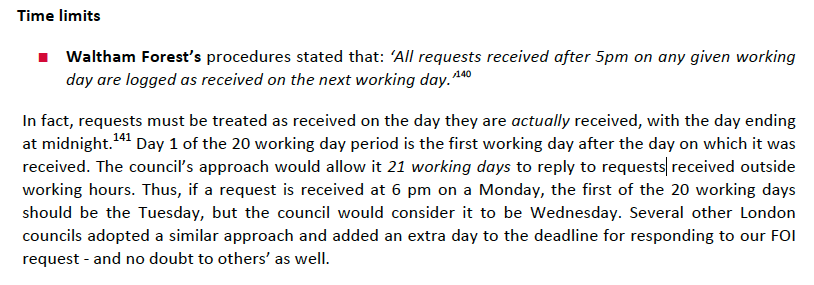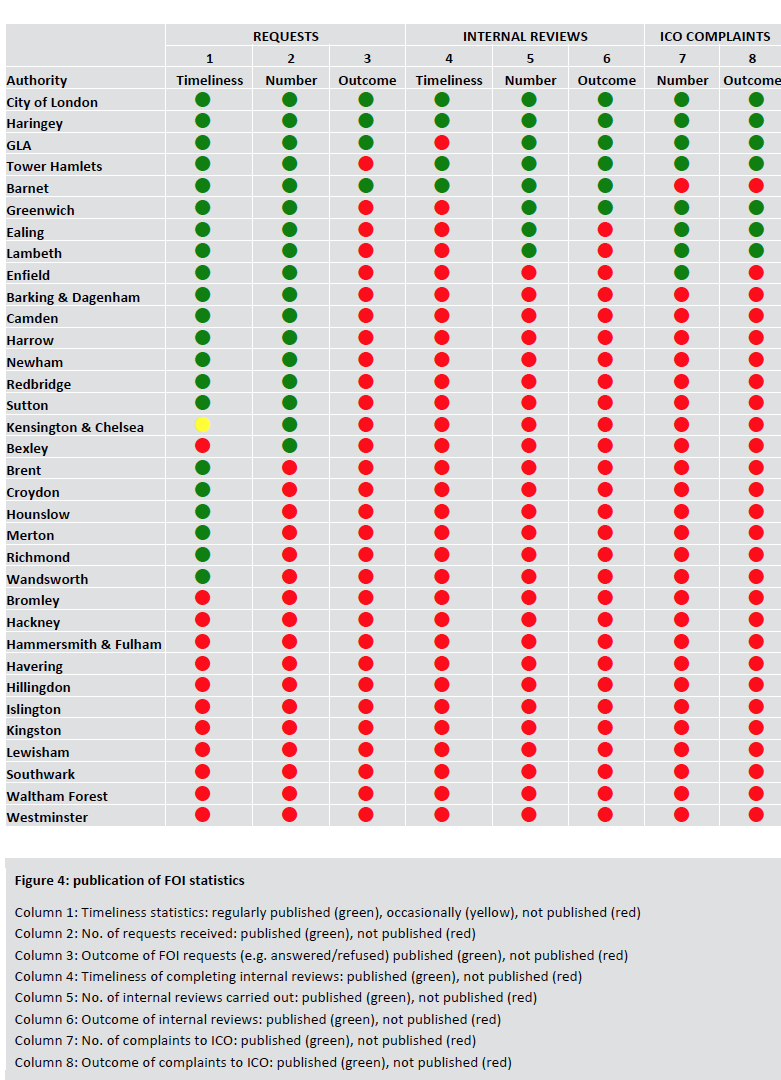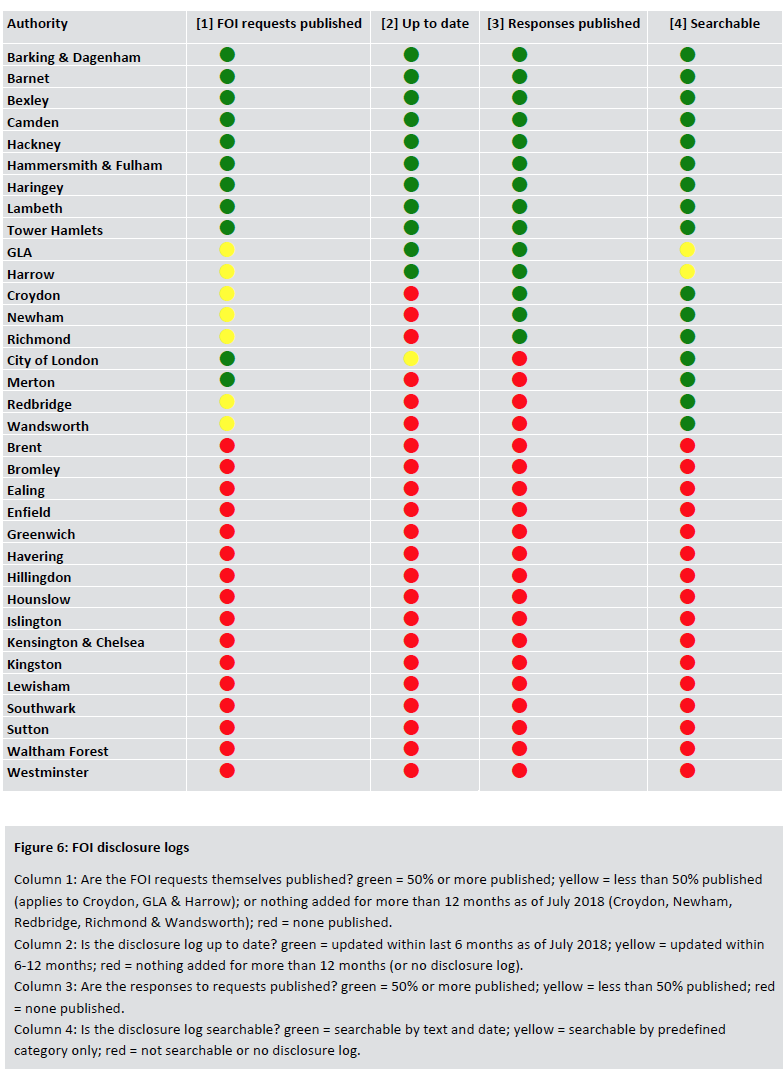LBWF and the Freedom of Information Act: some troubling new findings
The Campaign for Freedom of Information has just published an overview* that examines the extent to which London local authorities are following good practice in complying with the Freedom of Information (FOI) Act, and predictably LBWF does not come out of it very well.
To start with, it emerges that LBWF receives an unusually high number of FOI requests:
In passing, it is rather surprising to find that, almost uniquely, as a note to this chart records, ‘Waltham Forest wasn’t able to extract the number of requests received in 2016/17 from its system’.
But the more interesting question, obviously, is why LBWF finds itself being so much questioned.
Perhaps the borough’s residents are unusually inquisitive or disputatious.
But a more likely explanation is that the volume of recourse to the FOI reflects, first, LBWF’s penchant for spin, its unwillingness to publish information that has not been varnished; second, the oft exposed limitations of its public consultations; and third, the fact that over the years it has pursued a number of policy initiatives that are very unpopular.
Next is the matter of how LBWF actually deals with FOI requests. By law, answers are supposed to be produced within 20 working days. However, as the figures demonstrate, in the most recent year surveyed LBWF missed this deadline in about a third of cases:
Interestingly, too, the report discovers LBWF using a rather sneaky tactic, described thus:
On a host of other metrics, LBWF is again shown to be lagging, failing to publish, amongst other things, key information about how it is performing with respect to the publication of FOI statistics, and, perhaps even more unhelpfully, the responses it has given to individual inquirers:
None of this is reassuring.
LBWF may retort it is no worse than a good number of other councils, but such an argument does not convince.
For, as the Campaign for Freedom of Information underlines, where the will is there, underperforming councils have improved their FOI outcomes substantially, and moreover done so using methods that are ‘not cost intensive’.
LBWF talks a lot these days about a creating a new relationship with residents, about trust, about ‘supporting’ people and communities, and about ‘helping people to feel empowered’.
As this report demonstrates, though, there is a unspoken rider: ‘as long as they don’t start asking difficult questions’.
* The Campaign for Freedom of Information, FOI Good Practice. A survey of London local authorities (London, 2019)
See also: www.guardian-series.co.uk/news/17483275.council-took-seven-times-as-long-as-legally-allowed-to-answer-freedom-of-information-request/

